Six things the abortion lobby won’t tell you about decriminalisation – part two
Abortion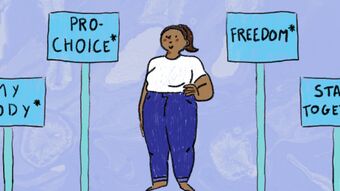
4. Decriminalisation affects all pregnant women
As mentioned in part one, the two statutes governing abortion at present are Sections 58 and 59 of the Offences Against the Person Act 1861 and the Infant Life Preservation Act 1929. These Acts serve to protect foetal life as well as pregnant women.
Section 58 OAPA provides that, if a pregnant woman is attacked or poisoned by a third party and she miscarries, her perpetrator can be prosecuted for the miscarriage. If section 58 of the OAPA is repealed, there will be no criminal penalty for her miscarriage pre-28 weeks. If the Infant Life Preservation Act is repealed, there will be no criminal penalty for her miscarriage up to birth. It isn’t possible to ‘murder’ a baby in the womb, but it is still possible to secure a conviction for ‘child destruction’ if the baby is viable, under the 1929 Act.
The law already needs reforming because it is often difficult to prove that a perpetrator intended the baby’s death, and women want justice for their baby at any stage of gestation – not just after viability.
Decriminalisation just makes this much worse. There is no explicit offence of forced abortion elsewhere in the law which means that charges will instead be brought solely for injury to the pregnant woman’s body, such as murder, battery, GBH or poisoning offences. It won’t recognise the injury caused to her baby as an extention of her injuries.
Whilst this means the perpetrator will still be brought to justice, this patently will not be remotely satisfying for a mother; losing a much-wanted baby is devastating.
In her Abortion Bill, which repealed s. 58 of the OAPA, Diana Johnson MP introduced a 'non-consensual termination of pregnancy' offence to cover this gap in the law. Whilst this provision creates an offence at all stages of gestation, it doesn't act as an effective replacement for the current law because it removes all mention of the baby itself. The offence hinges entirely on whether the woman consents to the termination or not, rather than the inherent need to protect foetal life because of its innate value, as well as its value to the mother. Any mum who loses her baby this way wants recognition of the little person living inside them. This is why parents of stillborn babies have been fighting for years for birth certificates, proving that their baby existed before 24 weeks. It matters to women that their baby is recognised and that they receive justice.
In Northern Ireland, should section 58 of the OAPA be repealed from 22nd October, there will be no criminal framework available that will cover this kind of offence. We can only hope that one is brought in if decriminalisation is successful across the UK. Make no mistake, decriminalisation is a big problem for the 3 in 4 women who keep their babies.
5. Under decriminalisation, abortions could be legally obtained because the baby is a girl or because it has a minor disability
Ground E of the Abortion Act 1967 allows for abortions for ‘serious handicap’ up to birth. In practice, this has been liberally applied. There is evidence that abortions have been obtained for minor disabilities such as cleft palate or club foot. We have moved to a society where people with Down’s Syndrome have been almost eradicated. 74% of babies prenatally diagnosed with Down's are aborted in England and Wales. In contrast, in Northern Ireland only 1 woman travelled to have a termination for Down’s in 2016. 90% of babies went on to live, creating a very different culture around disability than the rest of the UK.
As a result of this, we have seen a shift in society where, on the one hand, we claim to champion those with disabilities, and on the other hand we accept that they can be terminated purely on the basis of their disability. This sends the undeniable message that those with disabilities are less worthy of life. I recognise that many parents in this situation are presented with abortion as their only or best option, and that it can be very difficult to raise a child with a disability. But we also have to acknowledge that we are fundamentally devaluing the lives of disabled people by practically demonstrating that we don’t want to bring them into the world, or we think it kinder not to. Lord Shinkwin, who has brittle-bone syndrome, expressed this eloquently during recent debates on Northern Ireland in the House of Lords.
Similarly, we have evidence that sex-selective abortions do occur in the UK. Following a 2012 investigation by the Telegraph, three doctors were prosecuted for offering to perform sex-selective abortions. However, the prosecutions were not upheld, as they were found not to be ‘in the public interest’.
We say we want equality for women, but how can that be achieved if we allow them to be killed in the womb purely on the basis of their sex? Particularly when we see the consequences of sex-selective abortion on the rates of women trafficked and abused in cultures where it is widespread.
Under decriminalisation, there will be no need for a medical professional to sign off on an abortion under one of the Grounds of the Abortion Act 1967. This means that abortions can occur on the basis that the baby is a girl, or if it has any kind of disability – no matter how severe. Will we follow Canada, which has been described as a 'sex-selective haven' due to its lack of criminal framework around abortion? The abuses we see under the 1967 Act at present will not only become more widespread, they will be totally permissable under the law.
Without wanting to sound like scaremongering, we do need to genuinely ask ourselves where this will stop. As pre-natal screening becomes more and more advanced, we will know much earlier on (and in much greater detail) the sex, genetic defects, or even potential future health risks in foetuses at a much earlier stage in gestation. If abortions will be available for any reason, how are we ever to create a society in which discriminatory practices won’t become increasingly common?
6. Decriminalisation will make it much harder to protect women from coercion and abuse.
It is ironic that, in the fight to secure supposed gains for women’s equality, this change will actually see a much greater detriment to vulnerable women.
Under our current law, 1 in 7 women are coerced into an abortion by partners or family members. Under decriminalisation, it is still unclear what kind of framework will be in place to protect and safeguard such women through medical regulation.
With decriminalisation, the requirement for two medical doctors to sign off on the abortion will be gone. We are already seeing moves towards this, with guidelines suggesting that women should be able to self-refer for an abortion and use remote assessment. There is also increasing scepticism of pre-abortion counselling. How will coercion be adequately identified if women are not coming into contact with professionals at several stages in the termination process? These supposed 'barriers' actually act as safeguards for these women.
Abortion providers are supposed to be trained to detect signs of coercion or abuse, but we know that this does not always happen. By getting rid of the Grounds for abortion under the ’67 Act i.e. making abortion available for any reason, we are perpetuating a no-questions-asked culture around abortion where women are not adequately safeguardewd.
Some argue that it’s 'none of our business’ why women have chosen to have an abortion. But what if she is a 16-year-old who has been manipulated and abused by an older family member? What is she is a traumatised victim of domestic abuse, coerced into having an abortion by her abuser? What if she is a victim of trafficking forced to have an abortion by her traffickers? We must ensure that women in these cases are adequately protected from abuse.
Don’t turn a blind eye
It’s so easy to ignore all of these factors in pursuit of the current zeitgeist of autonomy. But, if we truly claim to care about women, how can we ignore such serious and widespread consequences?
Please don’t believe that this is all about equality and 'choice'.
Talk to women who’ve suffered from abortions, look up abortion videos and pictures, grapple with the ethical arguments, ask why so many women see pregnancy as a hindrance to their progression in a society. Seek the truth and pursue it ruthlessly. I hope you will see that decriminalisation is not part of a society that truly liberates women.
Don’t take anything you hear at face value – especially when it comes to abortion, which is often shrouded in euphemisms and false claims on both sides of the argument.
I do trust women. I truly want the best for them and want them to be kept safe from the harms that abortion causes them, and I want a society where women and babies are truly looked after.
I just don’t trust the abortion lobby.
Hopefully I’ve demonstrated that, quite frankly, neither should you.
This article is part of a two-part series. Read part one here.
Naomi Marsden is Communications Officer for CARE.
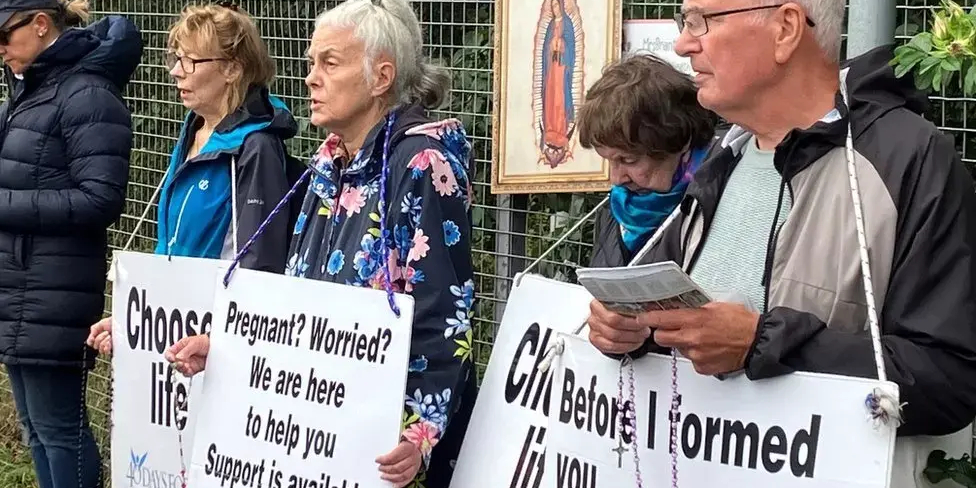
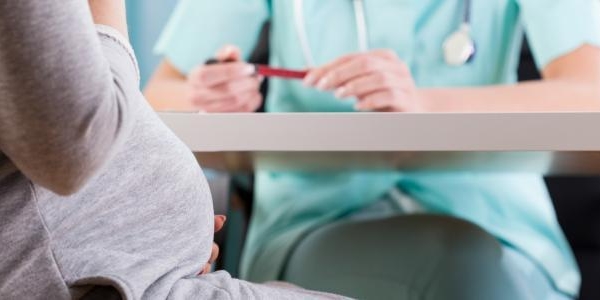
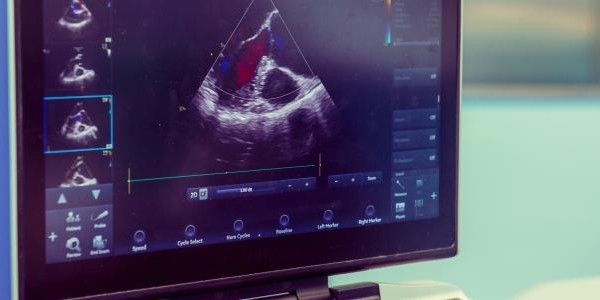
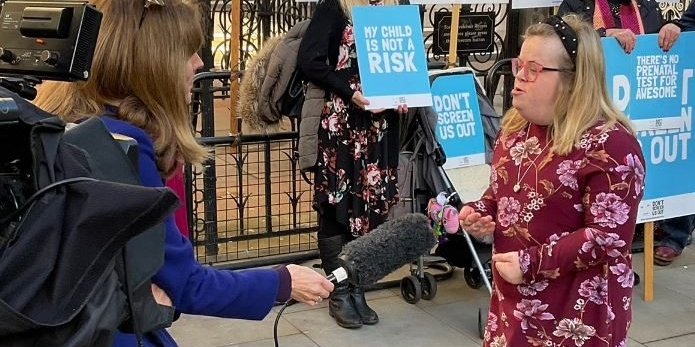

Share story
Six things the abortion lobby won’t tell you about decriminalisation – part two